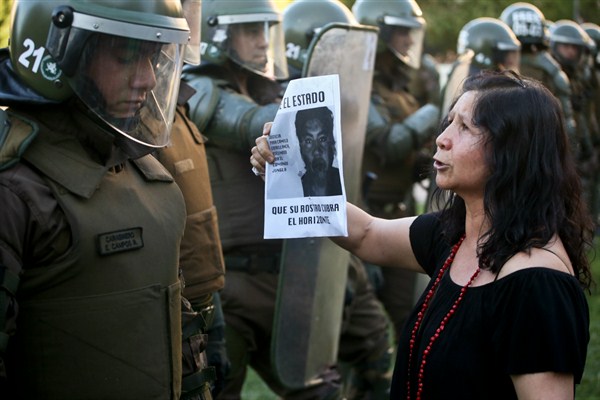President Sebastian Pinera’s administration in Chile is facing heavy criticism for its treatment of the country’s marginalized indigenous groups after security forces killed a young indigenous man in the southern Araucania region last month. Camilo Catrillanca, a 24-year-old Mapuche, was fatally shot on Nov. 14 by members of a heavily armed counterterrorism squad known as the “Jungle Commandos.” Four soldiers have been arrested in connection with the incident, which has prompted public protests across the country. In an interview with WPR, Jorge Contesse, a professor of international human rights law at Rutgers University, discusses the history of the Chilean government’s policies toward the Mapuche and other indigenous groups and explains why, in his view, a fundamental change of perspective is needed to address the issue.
World Politics Review: How does the recent killing of an indigenous man by security forces fit into the history of the Mapuche and other indigenous groups’ treatment in Chile?
Jorge Contesse: Throughout its modern history, Chile has been unable and unwilling to properly address the grievances of indigenous peoples. The Mapuche are the most populous and perhaps the most politically salient group, but there are others, such as the Rapa Nui, who have also been subjected to harsh repression by the government. The main problem is that every administration, on the right and the left, has addressed the issue through the lens of either poverty or social control. In other words, they have seen the Mapuche either as poor peasants or as terrorists, leaving the ethnic dimension of the conflict largely unaddressed. With such a narrow perspective that doesn’t take into account the fact that indigenous communities have been oppressed and marginalized for generations, there is no way the problem will be solved.

